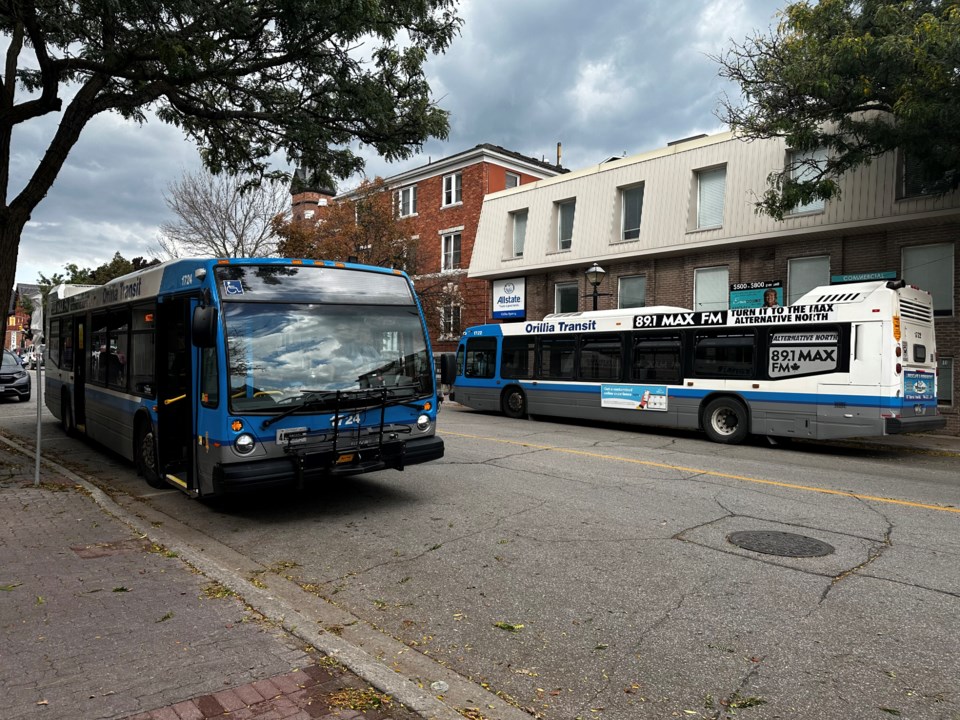The City of Orillia is jumping on board with Georgian College’s department of research and innovation to work on optimizing city transit using data analytics and artificial intelligence (AI).
Three research projects will be carried out by students as part of their academic programs, providing “real world research experience” to students and “valuable information to the City of Orillia to facilitate future public transit operational improvements,” city staff said in a recent council information package.
The projects include identifying new bus routes as the city is poised to grow, optimizing current bus routes by "leveraging" existing data, and optimizing on-demand transportation services should the city explore expanding these services.
Lisa Kean, the city’s manager of parking and transit, said the projects provide students with an opportunity use their skills to “solve tangible problems” in their community.
“This partnership also allows the City of Orillia to access fresh perspectives, innovative ideas with cutting-edge technology from our local academic community, which can lead to more effective and efficient solutions to local challenges,” she said.
“Additionally, such collaborations foster a sense of community involvement among students, instilling a greater appreciation for the impact of their work in Orillia.”
After data has been collected and analyzed by students, recommendations will be reviewed by city staff, Kean said. Following that, some of the ideas may be considered by city council for implementation.
The projects will be broken down into “small pieces” and completed by students in programs with the appropriate skill sets, said Brunilda Xhaferllari, project analyst with Georgian’s research, innovation and entrepreneurship department.
Whether using big data techniques to optimize existing bus routes, and project forecasted growth and new road development, or AI to investigate the most efficient paths of travel and “grouping users based on similar locations,” students from various backgrounds will have the opportunity to contribute to the projects with faculty support as they move forward, Xhaferllari said.
“We break down projects based on specific needs or partials, and where is the skill set?” she said. “Our students in big data, they're fully focused on big data techniques and tools, and (we) want to make sure that they are getting the best of their program, as well. It will (also) be open for other programs depending on the needs.”
One of the hopes for the work is to increase efficiency and reduce the environmental impact of city transit, she said.
“We want to see how to promote resource efficiency or reduce the environmental impact of transportation, and look into how to reduce travel time, cost saving, environmental benefits, etc.,” she said.
The collaboration between the city and Georgian stems from the college establishing its big data analytics program in 2016 and working to provide solutions to challenges faced by organizations and businesses.
“Our goal is to provide our highly skilled graduate students with extraordinary experiential learning opportunities that will promote meaningful social and economic benefit to our communities and business,” Xhaferllari said.
While Xhaferllari said timelines for the completion of the projects are still unclear, an executive summary for each project is expected to be released in August.
Funding for the projects will come through grant opportunities secured by the college at no cost to the city.
